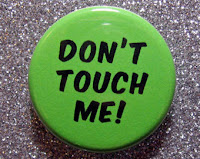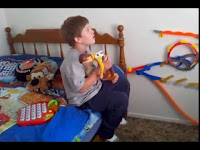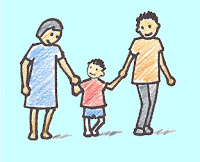Autistic Kids Who Hate To Be Hugged

“I have two sons. The older son (age 9) is very loving and always has been. Lots of hugs and snuggles. Very verbal and social. Well here comes son #2 (age 4) who has high functioning autism. Not a word. He doesn't like hugs or kisses. Anytime I ask for one, he runs away. Anytime I give him a hug, he struggles to get loose. His main method of communication is an irritating SCREAM. He does have his moments of being affectionate, but they are few and far between (usually when he is not feeling well). Of course I love both of my kids, but it saddens me that son #2 just doesn't seem to reciprocate most of the time. Anyone else have a fiercely independent child that you just have to learn to love.... differently?” First of all, you’re not alone. This is a common issue. Most youngsters with asD level 1 or High-Functioning Autism have a lot of difficulty learning to engage in the give-and-take of everyday human interaction. Even in the first few months of life, many do not intera

